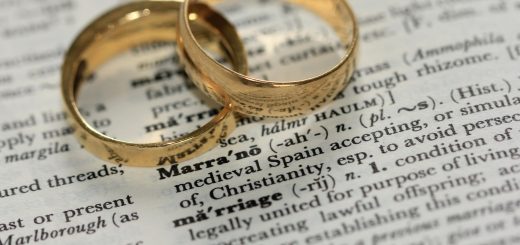Judging “Judging Bastarache”
The Canadian Legal blogoshpere is abuzz with commentary on “Judging Bastarache,” the recent released report penned by Chris Schafer and James McLean at the request of the Canadian Constitution Foundation (CCF). “Judging Bastarache” provides an empirical analysis of the jurisprudence of the now retired Supreme Court Justice Michel Bastarache. The primary motivation behind the report appears to be a pedagogical one. “Transparency in the courtroom” the report asserts, “requires educating citizens about the ideologies and philosophies of the men and women who sit on our nations highest court.” To that end, a critical assessment of Justice Batarache’s footprint on Canadian jurisprudence will place Canadians in a better position “to understand a person, and an institution, that exercise significant influence on the public policy that governs the lives of Canadians.” In the final analysis, however, the pedagogical benefit of “Judging Bastarache” is delimited by the report’s overtly partisan perspective.
Modus Operandi and Findings
Consistent with the CCF’s mandate, the focus of the report is on Justice Bastarache’s record on cases in which individual and economic freedoms as well as equality-related issues were at stake. The authors assigned Bastarache J. a freedom rating by looking at 37 cases in which he was involved and assigning him a “Pro-Freedom” or an “Anti-Freedom” designation based on his voting record. A “Pro-Freedom” rating of 70% or above is considered a good score.
On an aggregate level, Bastarache J. passed with flying colours, receiving a “pro-freedom” score of 73%. That said, a closer look reveals that the retiring justice’s freedom-loving temperament did not extend equally to all freedoms. Consider some of the report’s conclusions:
• Overall, he has been a stronger supporter of freedom. He was part of pro-freedom decisions 73 percent of the time, and anti-freedom decisions 27 percent of the time.
• In non-unanimous decisions, he was a weak supporter of freedom. He was only pro-freedom 59 percent of the time, and anti-freedom 41 percent of the time.
• In decisions involving fundamental freedoms, he was a weak supporter of freedom. He was only pro-freedom 56 percent of the time, and anti-freedom 44 percent of the time.
• In decisions involving economic freedom, he was a strong supporter of freedom. He was pro-freedom 83 percent of the time, and anti-freedom 17 percent of the time.
• In decisions involving equality, he was a strong supporter of freedom. He was pro-freedom 87.5 percent of the time, and anti-freedom 12.5 percent of the time.
The results were based on cases decided between September 30, 1997 and April 30, 2008. The CCF has expressed an interest in providing similarly themed reports for other justices of the Supreme Court.
Whose Freedom?
Underlying this empirical project of assigning Justice Bastarache a freedom rating is a conception of freedom that is grounded in ideology. To their credit, the authors of “Judging Bastarache” acknowledge as much, and issue an important qualification: “the compilation of cases to include in the assessment, in addition to the analysis itself necessarily reflects the judgment of the authors.”
It would be manifestly unfair to criticize “Judging Bastarache” for having an ideological underpinning. It is seldom, if ever that empirical research is entirely devoid of such an underpinning. That said, there are certainly ways to achieve greater objectivity in empirical research. For example, “Judging Bastarache” expressly omits cases such as R. v. Kouri, [2005] 3 S.C.R. 789, where a conflict between economic and individual freedoms exists.
However, even a cursory glance at “Judging Bastarache” betrays the report’s squarely conservative bent. Perhaps most strikingly, the authors characterize the majority decision in Chaoulli v. Quebec (Attorney General), [2005] 1 S.C.R. 791 – a case widely believed to be a forerunner to increased privatization of Canadian healthcare — as “Pro Freedom” and, by extension, the dissenting opinion as “Anti Freedom.”
Chaoulli struck down a Quebec ban on private healthcare for medically necessary insurance, based on Quebec’s Charter of Human Rights and Freedoms (which was ultimately determinative in the case), and s. 7 of the Canadian Charter of Rights and Freedom. Although many jurists agree with the notion that s. 7 of the Charter is implicated by a ban on private health services, it remains a matter of serious debate.
In fairness, it could be argued that, for all the controversy surrounding it, Chaoulli quite clearly, expands the ambit of s. 7 of the Charter, and for this reason, (as opposed to any calculation based on the decision’s impact on Canadian healthcare),Chaoulli can legitimately be designated as a “Pro Freedom” decision.
If this were the case however, then it would also follow that Gosselin v. Quebec (Attorney General), [2002] 4 S.C.R. 429 would be an Anti-Freedom decision. In Gosselin, the Supreme Court refused to countenance ss. 7 or 15 violations in a Quebec welfare regulation that substantially reduced welfare payments to able-bodied recipients under the age of 30 if they refused to partake in job training, community work, or school. The majority rejected a broader interpretation of s. 7 which would have included a guarantee of adequate living standards. Nevertheless, the majority opinion received a Pro Freedom rating, and the dissenting opinions — which endorsed broader conceptions of s. 7 — were designated as Anti-Freedom.
The same is true with respect to Health Services and Support – Facilities Subsector Bargaining Association v. British Columbia [2007] 2 S.C.R. 391. Health Services occasioned a substantial expansion of the scope of s. 2(d) (freedom of association) of the Charter, departing from past jurisprudence by interpreting 2(d) to have not only an individual, but also a collective application, (with specific reference to the right to engage in collective bargaining). All the same, the majority opinion in Health Services, (and for that matter the dissent, which also departed from the individualist interpretation of s. 2(d)) were identified by “Judging Bastarache” as Anti-Freedom decisions.
In characterizing Gosselin as Pro Freedom and Health Services Anti-Freedom, the authors reasoned that both decisions “neglected the conception of fundamental freedoms as “negative freedoms,” the exercise of which imposes no obligations on other people.” This conception of freedom, as a negative good which does not impose positive state obligation is most commonly manifest in conservative ideologies.
The Verdict: A Worthwhile Report, but not from a Pedagogical Standpoint
My biggest problem with “Judging Bastarache” is that it presents itself as a relatively objective appraisal of the record of Justice Bastarache. More accurately, it is an appraisal of Justice Bastarache’s political compatibility with the CCF. The latter objective, though as worthwhile as the former, is not exactly consistent with the pedagogical motives outlined in the report’s introduction.







Join the conversation